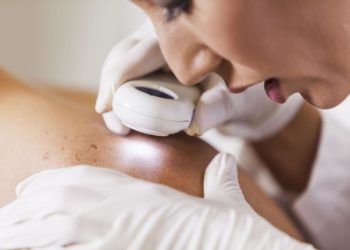Overcoming alcohol addiction starts with detox. For many people, pursuing this stage of the recovery process from home has proven more beneficial than a hospital admission. In moderate cases of alcohol addiction, detox from home can be facilitated but only under the guidance of an experienced GP (NCBI), other medical doctor and nurses specialised in detox and addiction treatment.
In the following guide, we explore the benefits of alcohol detox at home, what to expect and why the assistance of a GP is necessary for safe results.
What Is Alcohol Detox?
Detoxing consists of the cessation of alcohol intake and cleansing the body until alcohol is no longer actively present. While alcohol detox is a necessary step towards recovery, it is a difficult process because of the discomfort caused by withdrawal symptoms.
Detox and withdrawal are difficult to manage and place individuals at risk of medical complications. This is why, detoxing from alcohol must be monitored by doctors and nurses and should include prescribed medication to ease the experience of withdrawal.
The Dangers of Alcohol Detox from Home
Most medical providers advise against detoxing from alcohol at home because of the risks involved. Detoxing at a professional rehabilitation centre or hospital is recommended to manage withdrawal symptoms and the high potential for relapse. Overcoming alcohol addiction is challenging and detoxing at home is not for everyone.
If you are interested in pursuing treatment, it is important to consult with your local GP. They can advise on in-home alcohol detox monitoring and supportive programmes that focus on individual detox and recovery. They can advise on suitable treatment after successful detoxification.
Quitting Alcohol Cold Turkey
You’ve decided to take a necessary step towards overcoming alcohol addiction by pursuing detox. Quitting “cold turkey” without professional support and supervision can be detrimental to your health.
The severity of the symptoms is serious and can include extreme withdrawal side-effects. If you are alone when severe symptoms arise, and do not receive timely medical treatment, it could be extremely uncomfortable, even fatal. Alcohol not only affects psychological and emotional health but has both short- and long-term effects. Individuals who are impacted by severe alcohol dependence are advised against at home detox. For mild to moderate alcohol addiction, at home detox facilitated by a GP and professional nursing staff has greatly assisted those looking to overcome the grip of addiction.
Alcohol Withdrawal Symptoms
When alcohol is consumed frequently and in large amounts, the body eventually becomes dependant on it. Alcohol is a depressant and when the substance is no longer consumed, it creates an imbalance in which the central nervous system tries to adapt to the absence of alcohol. Withdrawal symptoms can cause a high temperature, increased heart rate, sweating, and nausea.
In severe cases of alcohol dependence, people experience alcohol withdrawal syndrome (AWS) that includes Delirium Tremens (DT). DT rapidly increases heart rate, spikes blood pressure, and can lead to severe shaking and even seizures. Without medical assistance and monitoring, DT can be fatal. It is common in those who drink heavily and have been dependent on alcohol for many years.
The dangerous symptoms of withdrawal can cause a decrease in electrolytes which creates arrythmias and possible cardiac arrest. Metabolic changes and low levels of phosphate can lead to muscle weakness and sudden coma.
The use of other substances such as prescription or illicit drugs can make the symptoms much worse and therefore, a professional should always be consulted prior to detoxing.
How to Safely Pursue Alcohol Detox from Home
The decision to start recovering from alcohol dependence is a positive one and with the appropriate detox and treatment plan, it is certainly worth pursuing rather than continuing to suffer the consequences of existing under the influence. Because alcohol detox from home offers comfort and is less expensive than a residential rehab, more people are interested in detoxing in a safe way within a familiar environment.
A safe alcohol detox from home starts with consulting your GP. Under their guidance, most individuals can successfully detox in their place of residence.
Your doctor will come to your home every day for the first 3 to 4 days when alcohol withdrawal syndrome and life-threatening symptoms such as Delirium Tremens are most likely to occur (NCBI). The GP may also prescribe medication to alleviate severe symptoms and assist with the relapse prevention once detox is complete.
For safe detox from alcohol, always discuss your options with your GP and never quit “cold turkey” because of the medical complications associated with most withdrawal symptoms.
The Benefits of Alcohol Detox at Home
Alcohol detox from one’s residence offers the comfort and the privacy of home. Rather than be placed in an unfamiliar environment such as a hospital, home detoxification offers the support from family and the familiarity that many need when working on addiction recovery.
It is also less expensive compared to an inpatient detox provided at a residential rehab or a hospital. Individuals will not have to travel for treatment.
Because so many people are on waiting lists to enter detox programmes offered through the NHS in the UK, a home detox provides immediate results and the opportunity to start the process without the need to wait for a program spot to open up.
Many have also expressed that a home detox provides more privacy than a clinic or inpatient programme helping them avoid the stigma associated with alcohol dependence.
Treatment and Support After Detox
Detox is the first part of the recovery process. To successfully overcome alcohol addiction and achieve sobriety, treatment must be sought through inpatient services, outpatient support groups, private counselling and government-funded therapy.
The pursuit of treatment after detoxing from alcohol will provide the tools, therapy and the guidance needed to pursue a life that is free from alcohol and the impact of addiction.


![7 Best POS Software in the UK [2026 Edition]](https://todaynews.co.uk/wp-content/uploads/2026/02/7-Best-POS-Software-in-the-UK-2026-Edition-360x180.png)










































































